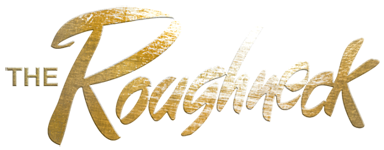
By Maurice Walch
In 2008 the financial industry crashed and an anonymous person (or group) developed a protocol for a cryptocurrency called bitcoin. It is not a traditional fiat currency backed by the assets of a nation state with a value subject to the control of a central bank. It’s a cryptocurrency that is theoretically an asset, like a precious metal, and its value is determined solely by supply and demand.
As I write this, each bitcoin is surpassing $19,000 (US) in value and perhaps its bubble is about to burst. But whatever happens to bitcoin, the protocols that allow it to function on a secure basis may be about to change the world we live in. As mentioned, the value of a bitcoin is determined by supply and demand. So, what protects the holder of a bitcoin from someone hacking the system and stealing the bitcoins?
The answer is a technology called blockchain. Essentially blockchains are ledgers that record a multitude of transactions and make them public thus providing complete transparency and security. Every 10 minutes, a block is recorded that details all the transactions that occurred in a particular application. Each of these blocks are connected and create the chain. Using the highest level of cryptography when a transaction is done, it is recorded around the world and is immutable so everyone has the identical ledger. If one ledger is changed, the change is recorded on everyone’s ledger simultaneously.
When the first paper cheque was issued in 1650 it required an element of trust for the vendour to release the goods for only a piece of paper and a promise, as opposed to gold in hand. Trust was established by writing the cheque on the paper of some type of intermediary, like a bank, with the understanding the bank would honour the cheque.
Today we do internet transactions instead of using cheques. To create trust, we still use intermediaries, such as banks or organizations like PayPal. When you make a purchase, it initiates a series of bit-stream transactions that go through a variety of companies and their computers, some of which are 1970’s mainframes. It can take days or weeks for money to flow, and the companies involved in the transaction each take a piece of the money on the way.
With a blockchain financial industry, there is no need for an intermediary. The transaction is directly between the two parties. There is no traditional settlement, it’s all one immediate transaction. As a result, blockchain is one of the most promising technologies for the future and its applications are not just limited to the financial industry.
It makes the organizations that use it faster, more transparent, efficient, and secure. Many of the industries and transactions that we are familiar with will be fundamentally changed as new start-up companies arise to provide alternatives. Insurance, finance, on-line data storage, charities, voting, healthcare, energy management, and on-line music are all industries that will be subject to change. Start-up companies, like OpenBazaar, will disrupt even internet giants like Amazon. Think Amazon is unassailable? In 2000, a multi-billion-dollar photo company, called Kodak (the inventor of the digital camera), had one of its best years ever. In 2012, it filed for bankruptcy as it became irrelevant, largely due to technologies like the smartphone.
A great example of how blockchain can affect financial transactions is an app called Abra. Today the largest contributor to money flowing from the developed world to the developing world occurs when immigrants send money to their families at home. Traditional financial intermediaries can charge a fee of up to 10 per cent and take four to seven days to arrive. Abra is a blockchain app that allows you to send money, in the form of bitcoin, anywhere in the world through an interface device, such as a smartphone. Someone in Canada can send money via their phone to a relative. Once the relative accepts the transaction on their device, a local teller shows up at their door with the cash. Now it’s a transaction measured in minutes instead of days and it costs two per cent instead of 10 per cent.
As you can see, blockchain eliminates the need for middlemen. Think about how many of us are working for some sort of link in the chain — between the originator of a product or service and the end-user. That’s a lot of middlemen positions that may be eliminated. The future is uncertain for those who are standing still, but promising for those who see the opportunities presented by this technology.
#Blockchain #Moneymatters #MauriceWalch #TheRoughneck #Finances #Investments #yyc #Calgary #Alberta #Canada






